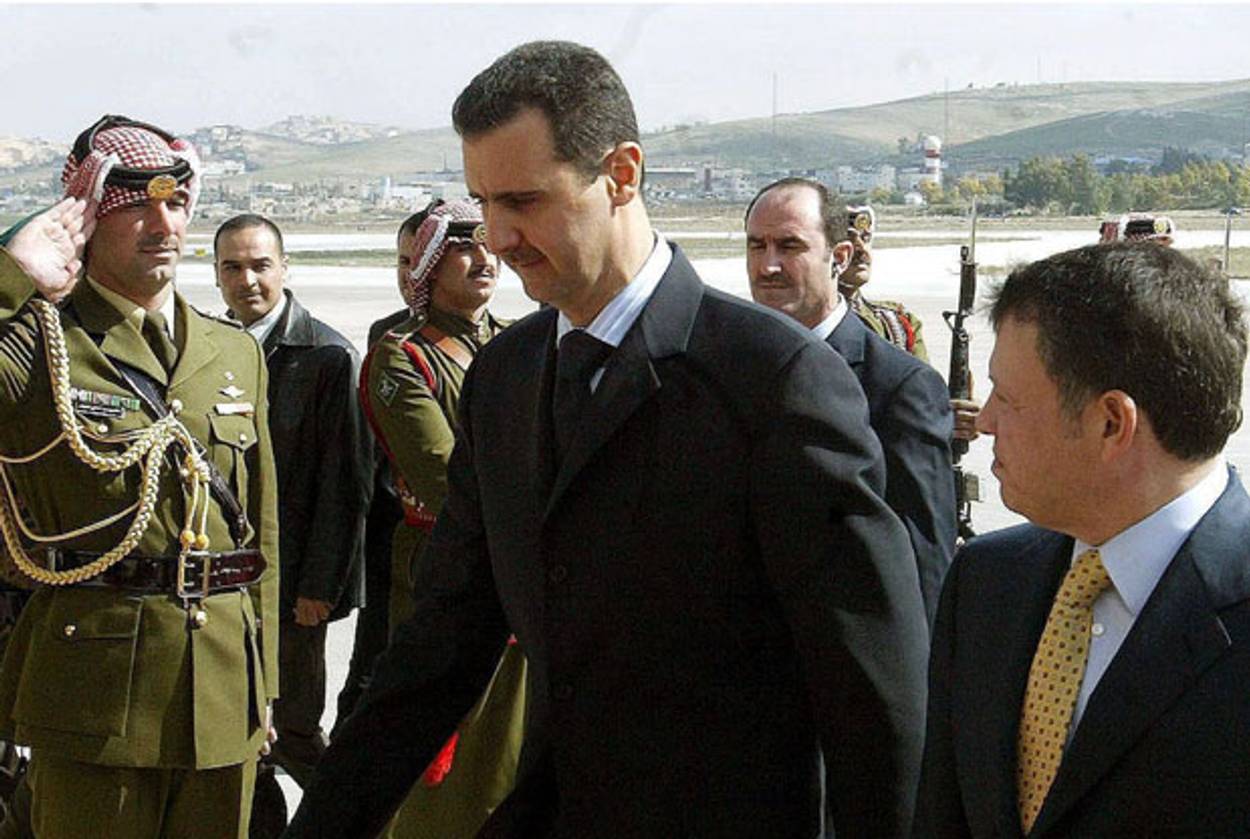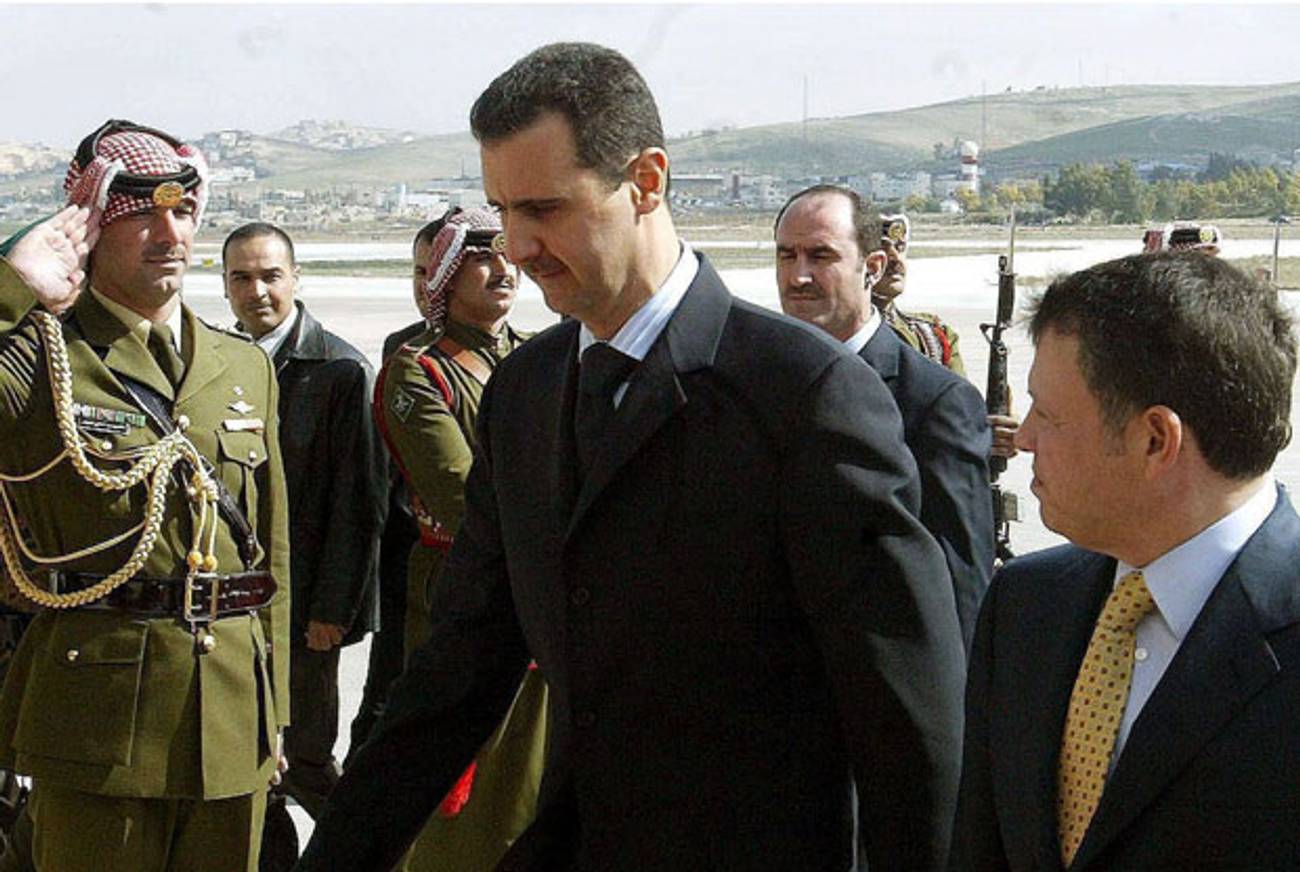A Farewell to Chatter
Diplomacy has failed in Syria. What next?




It’s been three months since Russia pulled the teeth of a U.N. resolution meant to condemn Syria and a little less since the useless Arab League monitoring mission was suspended due to violence. President Bashar Assad has taken advantage of the time. For instance, after a rookie year where he only killed 6,000 people he’s managed to add another 3,000 just in the first quarter of 2012. Less productive are his international opponents, whose major accomplishment has been getting Syria to sign onto an Arab League and U.N. brokered cease-fire deal that went into effect today and was immediately ignored.
Even after Russia vetoed the U.N. Security Council resolution in January some policy makers remained optimistic that Assad would fall on his own. Marc Lynch argued that the U.N. resolution indicated that the Western and Arab powers had concluded “that “Assad’s days are truly numbered, and the decisive pressure to remove him will come from the inside.” Maybe, but those numbers might just be the body count.
Either way, it hasn’t happened. Russia has stuck to its guns by selling them to Syria. The Arab League has sunken back into the irrelevance from whence it came. The Syrian opposition, lacking bullets or support, is being ground underfoot one day at a time. And while the international community has generally given up on negotiations they’ve shown no interest in the big stick either, exhibit A being the disappearance of Samantha Power from the public eye. “If you haven’t heard a syllable recently out of Samantha Power, the chief advocate in the White House for humanitarian intervention, it’s probably because such an intervention is simply not in the cards,” notes James Traub. (To the administration’s credit, they haven’t asked her to endorse their position, or if they have they accepted her refusal).
What remains? “It’s so much easier to say what won’t work in Syria than what will,” notes Traub in a great piece of analysis on the subject. All that is left for policy makers, who he says are increasingly frustrated by their impotency, is to find the “least bad options.”
As Traub notes, there are plenty of good reasons to rule out the Libya-style air intervention being promoted by folks like John McCain and Joe Lieberman. There are also a lot of bad ones: a trumped up fear of the opposition’s disunity, concerns that the fighting could spill into the region (it already has), and the unpredictable result of Assad’s fall (a concern that Israel was among the first to dismiss). Either way, nobody wants to.
Taking another road, Saudi Arabia and Qatar have begun providing limited arms. The Obama administration and Turkey is splitting the difference by providing communication gear to rebels (which, aside from military use, could be significant if it allows the opposition to achieve the McGuffin put forth by Secretary Clinton and Panetta of becoming more unified). Traub thinks that an escalation of this support could be “the least bad option” remaining to the Friends of Syria, and it is a doozy—not so much Libya, but something akin to a new and improved version of “the CIA-sponsored campaign to arm and train the mujahideen who fought the Soviets in Afghanistan.”
It’s hard to believe that this is the least bad idea, since there are just so many reasons it’s a terrible one (which Traub lays out). Unlike the laudably swift Libya intervention, it would take months just to organize the opposition. It would conjure memories of Cold War-esque catspaw foreign policy. Also, you know, the Taliban thing.
And those all need to be weighed, and alternatives sought, but passively waiting isn’t one. And as much as the idea sticks in our throat, the question isn’t whether the devil we know is better than the one we don’t. The United States, Israel and the world answered that last year. The question is whether Assad has done anything to change our minds since.
The Least Bad Option [Foreign Policy]
Making the Arab League Matter [Foreign Policy]
What Should the U.N. Do About Syria [TNR]
Syria Agrees to Troop Withdrawal, Annan Says [NYT]
Turkey Accuses Syria of Firing at Fleeing Refugees [NYT]
U.N. Raises Syria Death Toll Estimate to More Than 9,000 [Reuters]
Earlier: Assad Ouster Begins to Look Inevitable